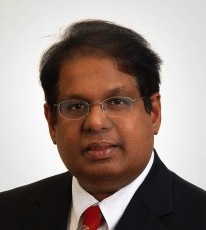Jaffna: A University Sinking In Mediocrity And Sectarianism

April 17, 2017
Perversion of Tamil Aspirations
There was a time the Tamils prided themselves in contrast to the Sinhalese polity’s image as mired in religious and ethnic obscurantism. This image was highlighted in the Vaddukoddai Resolution of 1976. The Tamil militant struggle, whatever its internal divisions, was strictly secular and those with left leanings were agnostic or even atheistic.
After many years of war dominated by a totalitarian political culture that paralysed the Tamil Community, those who wanted to revive it, so as to become vibrant and creative, feel that the University could play a crucial role towards this end. But unfortunately our experience shows it to be failing the community. It is rather fostering very corrupt practices and feels too afraid and insecure to open up, which is essential to cultivate strong and independent voices that would make the University truly vigorous.
Post war, sectarianism has arrived with a vengeance. The sectarianism on the surface would suggest discrimination in favour of a religion, but that is very misleading. The reality however is rank favouritism and corruption covering behind an air of religious piety. What is even worse, Jaffna University appears to set the lead in this regard. This feature illustrates the trend with documentary references. The victims are usually persons with no social connections or influence, most frequently Hindus. It is with a sense of this reality that many concerned with the North’s educational future welcomed Prof. Saambasivamoorthy Thiagalingam, a Hindu alumnus of the University of Jaffna from Boston, USA contesting for the vice chancellor’s position in Jaffna as offering hope. The University badly needed a breath of fresh air, and an opening that would welcome scholars who left the country to come regularly and contribute to raise, the currently plummeting, academic standards in Jaffna; to encourage others and to focus on assisting the University to become a well-respected academic and research institution.
The need for this change was the content of resolutions by the Jaffna University Teachers’ Association, Jaffna University Science Teachers’ Association, the Employees Union and the Jaffna University Students’ Union. Their demand was only to allow him to contest rather than to appoint him as Vice Chancellor. Even if he is not elected, it is important for the University to appreciate his willingness to serve and encourage him to contribute in whatever way he could support the University. That would have shown the University to be open to new ideas, expertise and talent, in service of the community.
However, the strength of the opposition to Thiagalingam, came from the core represented by those who have controlled the University for many years and had been leaders in the present culture that protects their power interests. They were clear about what was at stake. The Dean who later topped the VC election, who should have recused himself from the council discussion on the matter on 28th January because of his conflict of interest, was the only candidate to openly oppose Thiagalingam’s candidacy on account of the postal delay. Many well-wishers were thoroughly astounded that Thiagalingam’s application sent by registered post, as required, should be rejected because of an unforeseen postal delay of a day or two (See Colombo Telegraph Report I, Report II and Report III on these developments ).
Comedy of the UGC’s Advice and the Autonomous Council’s Erection of Non-existent Barriers
In line with the Council decision on 28th January, the Registrar had written to the University Grants Commission (UGC) for its advice on the status of Prof. Thiagalingam’s application and the VC’s objection that Thiagalingam had not applied through his head of department as required by the E-code.
UGC Secretary Dr. Priyantha Premakumara said in reply (see the attachment here) merely that the University is not legally bound to accept applications that came after the closing date. That is to say, the Council is not legally liable if it refused to accept Thiagalingam’s application. Though the advice was wrong, because of the Postal Rule (see Prof. Tharmaratnam’s address on this matter here), his was meant to be a cautious reply. This opinion should have been printed out and shared with the council members in advance. It was only read out on 25th February, the day before the scheduled election, and was grossly misconstrued by councillors with help from the VC and Prof. S. Sivasegaram, who said that entertaining Thiagalingam’s application would be illegal.
Dr. Premakumara did not talk about illegality although several council members would have been confused when it was read out without some explanation. However, he clearly indicated that if the Council thought Thiagalingam an appropriate candidate, they were welcome to entertain his application, late or otherwise. Dr. Premakumara’s reference to the E-code was with regard to the objection that Thiagalingam did not apply through his head of department. He indicated that this objection is applicable mainly to persons employed in universities and higher educational institutions within the country and not to outsiders who applied to these.
The VC, who undoubtedly understood Premakumara, confused the issue by talking about strict deadlines for tenders for goods or works, adding that the University would face lots of problems if it deviates from the E –code, which was followed by Prof. Sivasegaram on the illegality of considering Thiagalingam. He said that the Council would get into trouble if it did. He interpreted Dr. Premakumara as rejecting Thiagalingam based on the E-code.

